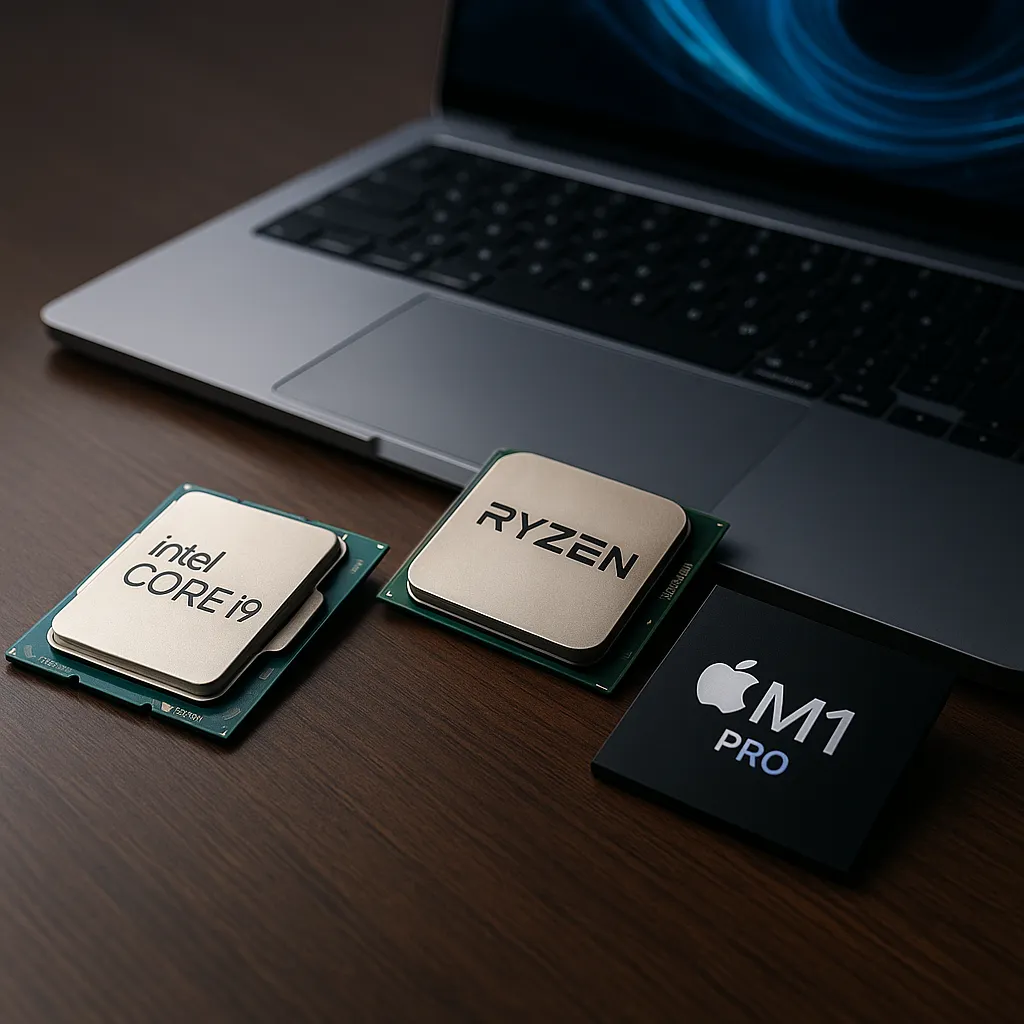ASUS vs HP Laptop: Which Is Better for Performance, Display Quality & Everyday Use?
Disclosure: This post contains affiliate links. LaptopVoyager.com participates in the Amazon Associates Program and may earn commissions on qualifying purchases, at no extra cost to you.
Last Updated: November 2025
ASUS and HP both make reliable laptops, but the real differences only show when you compare actual models. In this matchup, we’re looking at two strong options: the HP 15.6″ Touchscreen Laptop (Intel i7) and the ASUS Vivobook S 15 OLED (Intel i9)—both with 1TB SSD storage but completely different performance and user experiences.
👉 If you want more laptop options that balance speed and price, check our list of best laptops for everyday reliability.
💰 Check Price & Availability
View on Amazon – HP 15.6″ Touchscreen Laptop (i7, 16GB RAM, 1TB SSD)
View on Amazon – ASUS Vivobook S 15 OLED (i9, OLED Display, 1TB SSD)
📋 Quick-View Comparison List
- HP 15.6″ Touchscreen: Affordable, simple, great for productivity and school
- ASUS Vivobook S 15 OLED: Faster performance, premium OLED display, more future-proof
🔍 Performance Comparison
The ASUS Vivobook S 15 OLED is the performance winner. The Intel i9 chip offers faster multitasking, smoother editing, and better responsiveness with heavier workloads.
The HP 15.6″ Touchscreen Laptop still performs well for everyday use—office tasks, browsing, emails, streaming, and school work are all handled smoothly.
If you need power for creative software or intensive multitasking, choose ASUS. If your tasks stay light to moderate, HP delivers solid, reliable performance.
🔍 Display & Visual Quality
ASUS wins this category by a wide margin.
The OLED screen offers deep contrast, richer colors, and a far more immersive experience for streaming or creative work.
The HP touchscreen is practical and responsive but can’t match OLED color depth.
If visuals matter—movies, editing, design—ASUS feels dramatically better.
🔍 Build Quality, Portability & Design
The HP model is light, straightforward, and easy to carry. The touchscreen adds flexibility for students and casual users.
ASUS feels more premium, with a sturdier chassis, better keyboard, and a more modern design overall. It looks and feels like a higher-tier device.
Both are portable, but ASUS has a more polished and robust build.
🔍 Value for Money
HP offers the best price-to-performance ratio for everyday buyers.
ASUS costs more but gives you performance headroom, better visuals, and stronger long-term value.
If you’re on a budget, HP makes more sense. If you want something powerful and premium, ASUS is worth the upgrade.
📦 HP 15.6″ Touchscreen Laptop — Best for Productivity
HP delivers a smooth daily experience with its Intel i7 processor, 16GB RAM, and roomy SSD. The touchscreen adds convenience, especially for students, office users, and multitaskers who want reliability at a friendly price.
📦 ASUS Vivobook S 15 OLED — Best for Power & Visual Work
With an Intel i9 and a stunning OLED display, the Vivobook S 15 excels in creative work, entertainment, and heavy multitasking. It’s built for users who want premium performance and visuals without stepping into the ultra-premium range.
📌 Key Takeaways
- HP is the better budget-friendly choice for daily productivity and touchscreen use.
- ASUS delivers stronger performance, better cooling, and premium OLED visuals.
- Both include 1TB SSDs, but ASUS offers more power and long-term value.
- Pick HP for everyday practicality; pick ASUS for performance and creative workloads.
- ASUS is more premium; HP is more affordable and straightforward.
🟢 FAQs
Q: Which brand is better overall—ASUS or HP?
ASUS usually leads in performance and design, while HP focuses on affordability and practicality.
Q: Is OLED worth paying extra?
Yes—OLED offers deeper blacks, richer colors, and noticeably better visuals for movies and creative work.
Q: Which laptop is more durable?
ASUS typically feels sturdier and may last longer because of stronger build materials and cooling.
Q: Is the HP touchscreen useful?
For note-taking, quick browsing, and casual use, the touchscreen is genuinely convenient.
✅ Conclusion
Both laptops are excellent, but for different users. The HP 15.6″ Touchscreen Laptop is great for everyday productivity at a budget-friendly price. The ASUS Vivobook S 15 OLED is the better pick if you want faster performance, richer visuals, and a more premium feel. Choose based on whether you prioritize cost and simplicity or power and display quality.







